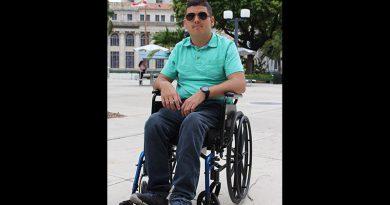The Future Of Cuba Continues To Be Uncertain

Cuba is a country that is changing, currently filled with young and old entrepreneurs. The little amount of money paid by the government has shoved Cubans to create their own small businesses.
The community doctor, the scientist, the lawyer, the teacher, after many years of studying and sacrificing, have to hang their diplomas on the wall and become entrepreneurs. Entrepreneurship is a surviving skill in the island.
Walking down the timeless streets of Havana, one can witness doctors driving tourists around in their 50’s Chevy’s, engineers selling homemade crackers in their handmade carts, and lawyers standing as living statues making gestures every time someone deposits money in their jars. These entrepreneurs are earning a higher income today as creators.
Cuban students witnessing how they can make more money on the streets are deciding to not attend university. According to The New York Times, the number of students going to university in the communist country “dropped almost 50 percent to 156,000 in 2011, from 300,000 in 2008.”
“Why would I go to university for four to six years of sacrificing everything if I am not going to be able to provide to my family?” is the question the students are asking themselves.
I recently found on Facebook some former classmates and my elementary school teacher from Cuba. Sadly, none of them who still live there went to university, and my teacher doesn’t work for the government anymore. One of my classmates is taking private English classes at night, and during the day, he works doing whatever he can do to make money.
If the country does not change, they don’t see themselves having a promising future in Cuba.
This past March, President Barack Obama said in his speech in Havana: “The future of Cuba will be decided by Cubans, not by anybody else.” The change that my classmates and many Cubans are desperate to see is a change that must happen from within.
My concern is that a doctor can be a taxi driver, but a taxi driver can’t be a doctor. Given that Cuba changes, the doctor can always go back to being a doctor, but these young people not continuing their studies are not going to have a career that can guard them to get ahead and succeed in life.
Without an education, it will be hard to be part of the change, and their future will continue to be uncertain.
Rafael Torres, 27, who is majoring in graphic design at Kendall Campus, left Cuba two years ago. Torres graduated from the National School of Art in Havana. After two years as an art teacher, he decided to quit and work for a family-owned body shop.
“I love my country, but I left because Cuba cannot give me the future I want to fight for. [The U.S.] lets me dream, it also gives me the strength to fight for [my dreams]. The Cuban government is losing their youth by giving hope of change to…[tourists] but not to their own people,” Torres said.
To be fully in charge of their future, Cubans need to be conscious of how the decisions they make are going to impact their society, but more importantly, the role an education plays. Like Cuban patriot and poet Jose Marti once said, “to be educated is the only way to be free.”




